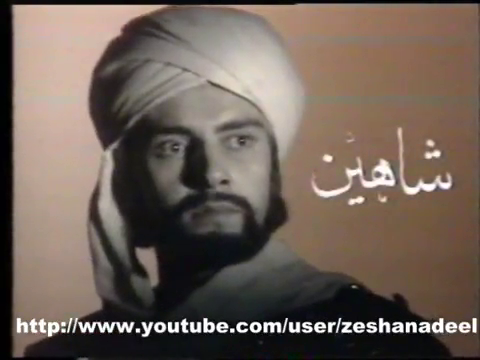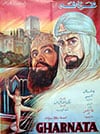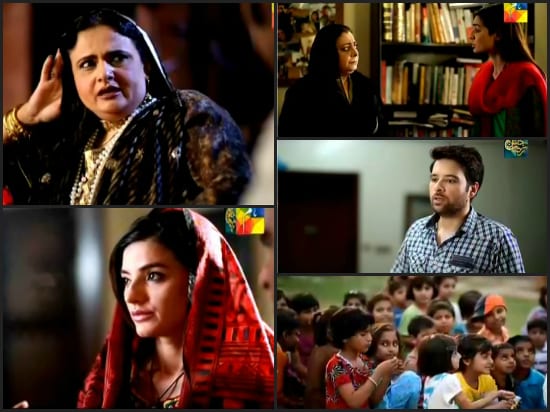Sharif Hussain, famously known as Naseem Hijazi was a popular urdu fiction writer. He was born in 1914 in Punjab (Now Indian Punjab). During partition of India when the massive ethnic cleansing of muslim population of East Punjab occured, Naseem Hijazi’s family also migrated to West Punab, Pakistan where he settled in Lahore. Naseem Hijazi passed away in 1996.

Naseem Hijazi is one of the few fiction writers who only wrote on the historic events of muslim history. The earliest name in this list is Abdul Haleem Sharar, who also wrote many novels on muslim history. Naseem Hijazi wrote on many events, like Arab rule in spain, Crusades, Partition of India, Arabs before Islam, Ummayyads conquest of Sindh led by Muhammad Bin Qasim, Cast system in Hindus and others. Naseem Hijazi and his writings were very popular for decades, though he was also criticized sometimes for always depicting one side of the picture and not always authentic on historical accounts. Novels of Naseem Hijazi were part of personal library in many households in 70’s, 80’s and even 90’s and perhaps still a popular choice even today.
Naseem Hijazi’s novels were also adapted for films and television plays as mentioned below here.
Gharnata (1971)
Gharnata in 1971 was the first film based on the novel Shaheen of Naseem Hijazi. It covered the historic events regarding the last days of Arab Rule in Greneda, Spain. Riaz Shahid (Father of Shaan Shahid) was the director and writer of the film. Nisar Bazmi was music composer, while Rozina, Yousuf Khan, Jameel, Asiya, Iqbal Hassan, Adeeb, Sabira Sultana, Jameel, Tarana, Aslam Parvez, Rehan were in the leading cast. One song of this film ‘Kis naam say pukaron kiya naam hai tumhara‘ sung by Madam Noor Jehan is popular till this day.
Riaz Shahid had produced some remarkable films on Muslim history and issues of muslim world. His most famous film was Zarqa on the Palestine issue. He also produced a film Yeh Aman on Kashmir issue. Riaz Shahid was famous for his ability to write some powerful dialog. Gharnata performed average at box office.
Khaak-o-Khoon (1979)
Khaak-o-Khoon is the second film based on the novel with same name of Naseem Hijazi regarding partition of India. This film was produced by government institution NAFDEC (National Film Development Corporation) in 1970’s. NAFDEC was established by Prime Minister Zulfiqar Ali Bhutto to promote Pakistani cinema. Khaak-o-Khoon was one such attempt of NAFDEC to produce a quality film on creation of Pakistan. Filming started during the reign of Mr. Bhutto but by the time film is screened Bhutto was already dethroned about to be hanged as per decision of supreme court and the country was then ruled by dictator General Ziaul Haq. The film was released on 23 March 1979, whereas Z.A. Bhutto was hanged on 4 April 1979.
Naseem Hijazi was the writer of this film. It was directed by Masud Parvez and Nisar Bazmi was the composer. Shujaat Hashmi, Mehboob Alam, Abid Ali and Naveen Tajik were leading artists in the cast. Though admired by critics, business wise this film was declared average.
In 1978-79 Pakistan was enjoying very warm relations with India. General Ziaul Haq had good terms with then Indian Prime Minister Morarji Disai. Later Mr. Morarji Disai was also awarded Nishan-i-Imtiaz (highest civillian award) by Pakistani government.
Despite based on patriotic theme Khaak-o-Khoon received a cold response from Zia government and is removed from theaters shortly after screening. Though not official it was widely famous then that it was done on the orders of Zia government. The Zia government had concerns that this film might impact relationships between India and Pakistan so the film was removed from theaters shortly after screening.
General Ziaul Haq came to power in 1977 with the promise of establishing rule of Sharia, a promise which was never fulfilled. His regime imposed restrictions on television and films especially Urdu films were severely affected due to these. To show governments is inclined towards religion Pakistan Television (PTV) also produced many dramas on muslim history. Naseem Hijazi’s novels were a natural choice for any such drama. Thus in 1980’s PTV produced two dramas adapted from Naseem Hijazi’s novels.
Aakhri Chataan (1980)
It was a drama directed by Qasim Jalali, based on a the novel with same name. The novel covers the events of crusades and famous muslim ruler Salahuddin Ayubi. Aakhri Chitaan was widely popular being one of the first drama based on muslim history. The drama has a long cast like any historical drama. Saleem Nasir, Sultana Zafar, Azra Sherwani and many others were in the list of cast members.
Shaheen (mid 1980’s)
Shaheen in mid 1980’s was the second drama based on a novel of Naseem Hijazi. It covers the historical events of last days of Arab Rule of Greneda, Spain. The drama was also successful and widely viewed. It was dramatized by Saleem Ahmed and Asad Muhammad Khan and produced by PTV Quetta Center. Novel Shaheen was also adapted earlier for a film named Gharnata.
Ismael Shah debuted in acting from this drama, who later enjoyed a limited success in film industry till his death at a young age in 1993.

Shaheen was the last drama based on a novel of Naseem Hijazi. In 1988 dictator General Ziaul Haq died in a plane crash and PTV see an ease in restrictions .By 1989 armed independence struggle also started in Occupied Kashmir and PTV thus started producing plays based on Kashmir rather on muslim history. Plays on Kashmir dominated the whole decade of 1990’s though PTV also produced few historical plays like Babar and Tipu Sultan in the same era.
Since mid 2000’s many private satellite channels emerged and the new era of drama has focused on many new subjects. However the genre of historical drama has almost vanished. Apart from Dastaan (2010) there are very few historical dramas. Historical dramas require high budget, focused approach and extreme hardwork on research and script writing a practice our private production houses are not used to. So PTV is the only channel which can still afford to make a historical drama as it is backed by govenment. PTV also recieves billions as Television license fees from all domestic electricity consumers.
Do share your considerations and experiences regarding writings/dramas of Naseem Hijazi. Also can historical dramas be successful in current age? Are the television viewers of current era ready to accept any historical dramas?
Do share your views. Thanks for for your time.
Rashid Nazir Ali





